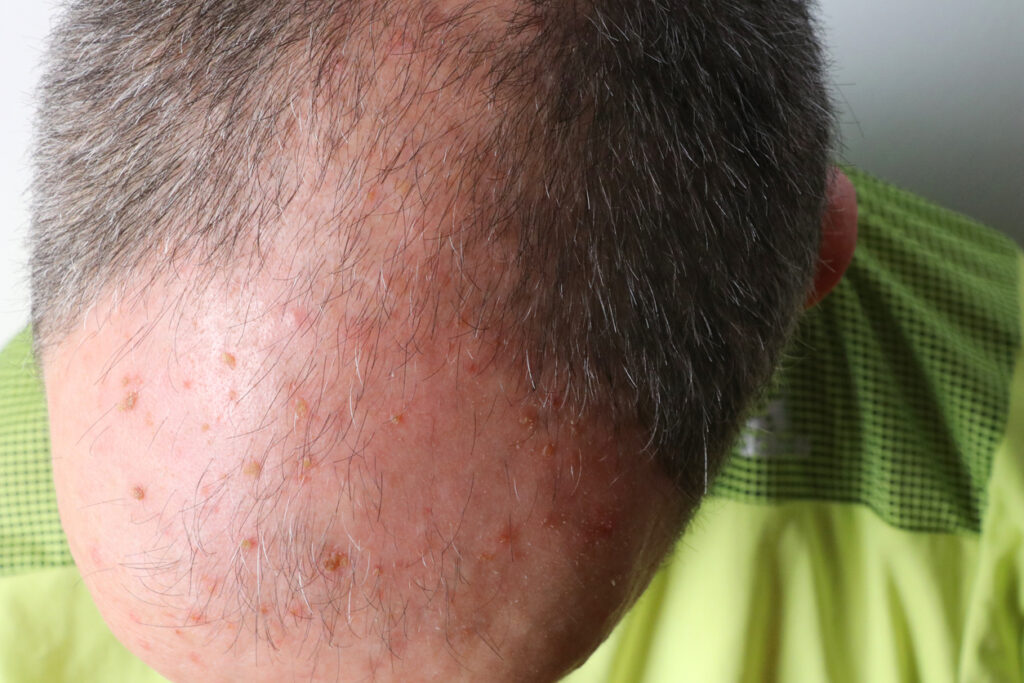More than one-third of people who have had an actinic keratosis (AK) don’t know what causes it, according to a new survey from Almirall.
Overexposure to sunlight over time can lead to the development of actinic keratosis. Despite this, most people have never gotten their skin checked by a professional (57.80%), and half of Europe’s population gets sunburned at least once a year. This figure increases drastically in the 35-44 age group, with more than six out of ten people getting sunburned at least once a year, the survey found.
“Actinic keratosis lesions are closely related to overexposure to the sun´s ultraviolet (UV) light, and this year´s survey data show that there is still a significant lack of awareness of the long-term risks of excessive sun exposure without adequate protection,” says Dr. Volker Koscielny, Almirall’s Chief Medical Officer, in a news release. “Addressing this lack of awareness is a key factor in preventing the development of actinic keratosis lesions as pre-forms of cancer.
The new survey included more than 2,500 participants older than 35 in Spain, Germany, Italy, the United Kingdom, and the United States. The survey asked 15 questions designed to understand the public’s sun protection behaviors and their awareness of, and attitudes towards, actinic keratosis. In terms of demographics, respondents were distributed as follows: 60.82% of respondents were between 35 and 54 years of age, 36.94% between 55 and 74, and 2.24% were 75 or older, whereas 55.96% identified as female and 44. 04% as male.
The survey’s release was part of the launch of its AK Global Day campaign “Stay Vigilant’ which was held on May 24, 2024.
This year’s campaign focuses on the relationship between the disease and prolonged exposure to sunlight. It aims to encourage people to perform regular skin check-ups to detect AK lesions as early as possible and recognize them as a call to action to seek support from health professionals.
Last year, Almirall reported that 85% of those surveyed were unaware of the existence of actinic keratosis.
Dr. Javier Cañueto, Head of the Department of Dermatology at Complejo Asistencial Universitario de Salamanca, adds, “It is crucial to remember that certain lesions have the potential to develop into skin cancer. Actinic keratosis, in particular, can progress into Squamous Cell Carcinoma if left untreated. That is why identifying and treating actinic keratosis lesions early is essential to reduce the risk of disease progression.”


